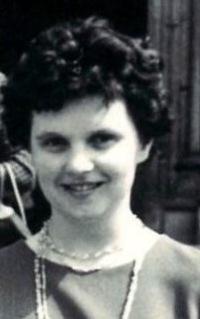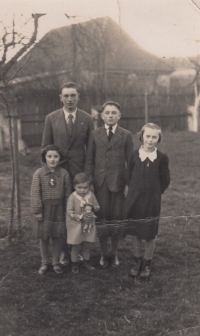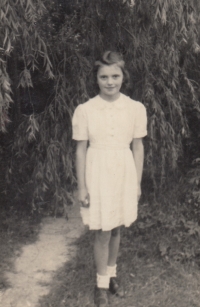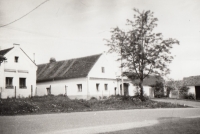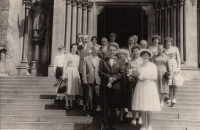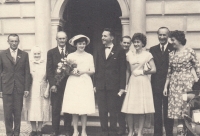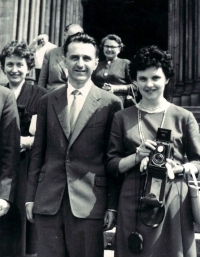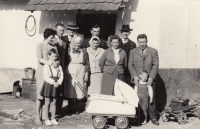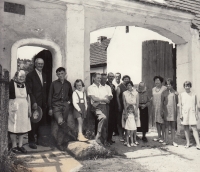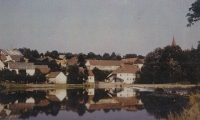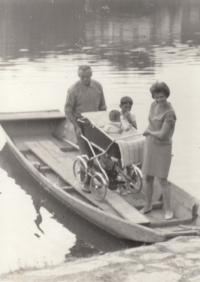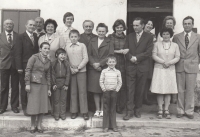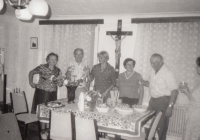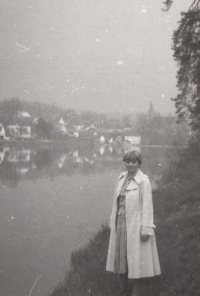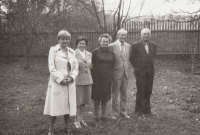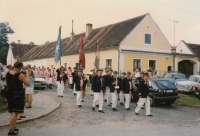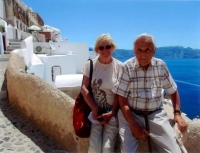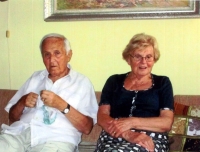The 50s were the worst, we had nothing at all
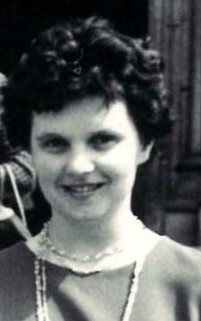
Stáhnout obrázek
Anna Lukešová was born on 1 November 1935 as the youngest daughter of the five children of František and Anna Ambrož. Her parents were farmers on a small farm in the village of Purkarec in southern Bohemia. Anna Lukešová describes her life during the war. After the liberation of Purkarec, a Red Army garrison temporarily settled on the farm. At the beginning of the 1950s, their farm was affiliated with the newly established JZD (Unified Agriculture cooperative). Anna Lukešová graduated from the fifth grade in Purkarec and attended the town school in Hluboká nad Vltavou. Then she entered the secondary agricultural school in České Budějovice. In 1950, however, at the age of 15, she found a job at the Stavoprojekt company in České Budějovice. Within a few years, she finished her building industry studies at night. She then worked at Stavoprojekt until 1970. In 1968, like several others in the company, she voted for the dismissal of the director and his deputy. After the occupation of Czechoslovakia by Warsaw Pact troops in 1968, she was no longer wanted at the company. After leaving Stavoprojekt, she worked at several places in České Budějovice as a construction technician. Anna Lukešová never joined the Communist Party of Czechoslovakia. In 1962 she married Julius Lukeš. After the wedding, they lived in a house in Česká street in České Budějovice, where her husband‘s family had previously run a butcher‘s shop. After 1948, the communists nationalized the Lukeš butcher‘s shop, the house was taken over, and the Meat Industry began to rent the apartment of the Lukeš family. They became tenants in their own house. Her husband, Julius Lukeš, was persecuted for his origins, professionally, economically and socially, throughout the period of communist totalitarianism. At the time of filming (2024), Anna Lukešová lived in České Budějovice.
